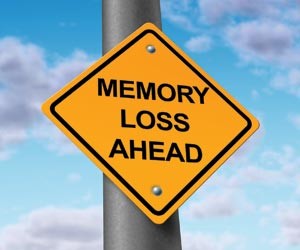Whether I’m coaching someone who’s been a meeting planner for five years or 15-plus years, it’s likely that the person will take a long pause when I ask them to identify accomplishments and achievements for anything past their current position.
People frequently assume they’ll remember the details of important events with absolute clarity. While it might be easy to recall having worked on a large conference or event, what might not come to mind immediately are specifics about the program, such as the budget, number of attendees and even the location of the event. What people oftentimes forget are significant details such as the cost savings they achieved or accomplishments that had a direct impact on the success of a particular meeting or event.
This lack of retaining details is a common occurrence. It’s what a Harvard Health Publications Special Health Report on memory refers to as transience: The tendency for the brain to forget facts or events over time.
The article, “Improving Memory: Understanding and Preventing Age-Related Memory Loss,” addresses different ways our brain retains or looses information and how memory has a “use-it-or-lose-it” quality. Memories called up and used frequently are the ones our brain are less likely to forget, whereas memories not tapped into as often tend to fade away.
According to the author of the article, Kirk R. Daffner, M.D., transience is similar to what happens when we do “spring cleaning” of our closets or remove temporary files from our computer’s hard drive. The process allows the brain to have more space to store newer, more useful memories. That’s why it’s important to keep track of your accomplishments and achievements to avoid losing them.
Here are some simple steps you can take to ensure that you have ready access to your current and past accomplishments and achievements:
- Continually update your resume: There’s a tendency for people to think that the only time they should update their resume is if they’re in the process of a job search. If you’re applying for a higher-level position within your company or organization, you may need to submit your resume, so make sure it reflects all of your current and past successes. Think of your resume as your work journal where you record accomplishments and achievements after each meeting or event you manage. Keep it simple—just a bullet or two that lists any details that can easily slip away over time. The most important thing about this file is that it needs to sit on your personal, and not your work, computer. Unfortunately, if you are laid off suddenly, you probably won’t have time to access any information you’ve stored on your work computer.
- Manage your LinkedIn profile: Make sure your LinkedIn profile includes the same new achievements and accomplishments you note in your updated resume. Unexpected opportunities could present themselves if a potential employer sees that you have the type of experience they’re seeking.
- Keep a record on a jump drive: In addition to keeping and maintaining an active copy of your resume on your computer, be sure to make a copy of this information on a jump drive. Think of this as an inexpensive piece of insurance. For less than $10, you can purchase an 8GB jump drive at any office supply store.
- Maintain a manila folder of relevant documents: Keep a copy of any conference brochures, invitations for special events, websites or webinar designed for a meeting or event you managed. It doesn’t matter if you didn’t actually design these pieces. The purpose of keeping a copy of relevant collateral is two-fold: It helps jog your brain if you haven’t recorded details about a particular meeting; and it’s something you can add to your work portfolio so you can provide a potential employer with a visual record of your accomplishments and achievements. Keep this file in your backpack or briefcase and not in your desk at work.
- Schedule a quarterly career tune-up: Just like setting up regular oil changes for your car, schedule what I call quarterly career tune-up times; allocate 30 to 60 minutes every three months to catch up on any accomplishments or achievements you may have missed recording during that time. Create an alarm on the calendar feature of your phone to ensure that you keep this important appointment for your career success.
Sheryl Sookman, CMP, is principal of The MeetingConnection, a company that offers career coaching and resume design services to individuals in the meetings industry, and placement services to corporations, associations and third-party meeting management companies seeking qualified meeting professionals for full-time and contract assignments. Sookman presents workshops, keynote speeches and webinars on career- and employment-related issues. Her book on career strategies and resume design, Who’s In Charge of Your Career? Creating a Strategy for Success, is available through Amazon.com. You can reach her at sheryl@themeetingconnection.com or 415.892.1394. The MeetingConnection’s website is located at www.themeetingconnection.com.






